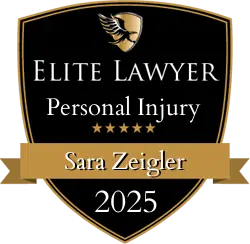When you trust a healthcare provider with your health, you expect to receive the highest standard of care. Unfortunately, mistakes can happen—even in the hands of skilled medical professionals.
When medical malpractice errors, such as misdiagnosis, surgical mistakes, or medication errors, lead to serious injury or worsen an existing condition, it can be devastating for both you and your family.
In the wake of medical malpractice, you might wonder, “Do I have a valid case?” and “How can I prove negligence?” These are common concerns, and you’re not alone in feeling confused or unsure about your next steps.
With the right guidance, you can successfully navigate the complex legal process involved in medical malpractice. Our team of medical malpractice attorneys in West Virginia is here to provide you with the support you need during this difficult time.
What Constitutes Medical Malpractice in West Virginia?
Medical malpractice happens when a healthcare provider, like a doctor, nurse, or hospital, fails to deliver the care that a reasonably competent professional would provide under similar circumstances.
The idea of a “standard of care” is central to medical malpractice, as it is the commonly accepted practice all medical professionals should follow when treating patients. If your healthcare provider deviates from this standard, causing harm or injury, this can be considered malpractice.
However, it’s important to remember that not every medical error constitutes malpractice. Medicine is not an exact science, and reasonable mistakes can happen even when every precaution is taken.
For malpractice to be considered, the failure in care must result in harm. This harm can manifest in:
- A condition worsening
- New complications
- Unnecessary or prolonged pain
- Death
Each case is unique, but the key lies in demonstrating that:
- The error was a breach of the duty of care owed to you, and
- It directly caused your suffering.
Common Types of Medical Malpractice Cases
Medical malpractice can take many forms. Some of the most common types include:
- Surgical Errors: This includes mistakes during surgery, such as operating on the wrong body part or leaving instruments inside the body.
- Misdiagnosis or Delayed Diagnosis: Failing to correctly diagnose a condition in time can lead to worsening health issues or even death.
- Medication Errors: Administering the wrong medication or incorrect dosage can cause serious harm.
- Birth Injuries: Negligence during childbirth can result in long-term injuries to the mother and child.
- Anesthesia Mistakes: Anesthesia errors, including incorrect administration or failure to monitor the patient, can lead to severe consequences.
How to Prove Negligence in a Medical Malpractice Lawsuit
Proving negligence is essential to winning a medical malpractice case. There are four key elements that your West Virginia medical malpractice attorney must demonstrate:
1. Duty of Care: The healthcare provider owes you a duty of care.
2. Breach of Duty: They failed to meet that standard of care.
3. Causation: The breach directly caused your injury.
4. Damages: You suffered damages, such as medical expenses, lost wages, or pain and suffering, due to this negligence.
Medical malpractice cases can be complicated, so you must have an experienced medical malpractice attorney in West Virginia to build a strong case.
Steps to Take if You Suspect Medical Malpractice
If you suspect something has gone wrong with your medical treatment, it might be malpractice. Here are some steps to protect your case:
1. Get Medical Help
If you’re experiencing new or worsening symptoms, seek medical attention right away. Consider getting a second opinion from a different doctor to ensure you’re receiving the proper care.
2. Document Your Experiences
Write down your account of what happened, including how you’ve been feeling physically and emotionally. This health diary can capture details that medical records might not, such as pain levels and emotional distress.
3. Don’t Rush to Conclusions
It’s natural to feel frustrated or upset, but not every bad outcome is due to malpractice. Medical treatments can sometimes have unexpected results, even when everything is done correctly.
However, if you believe something was mishandled or overlooked, trust your instincts and take action.
4. Talk to a Medical Malpractice Attorney
Navigating a medical malpractice case on your own can be overwhelming. A skilled medical malpractice lawyer in West Virginia can give you the support and guidance you need.
Compensation for Victims of Medical Malpractice
Victims of medical malpractice in West Virginia may be entitled to compensation for various damages, including:
- Medical Expenses: Both past and future costs of medical treatments related to the malpractice.
- Lost Wages: If you’ve had to miss work due to your injuries.
- Pain and Suffering: Compensation for the physical pain and emotional distress caused by the negligence.
- Loss of Enjoyment of Life: If your injuries prevent you from participating in activities you once enjoyed.
- Punitive Damages: Awarded in medical malpractice cases involving gross negligence, intentional harm, or reckless conduct. These damages penalize the defendant for egregious behavior that shows a blatant disregard for patient safety.
West Virginia Medical Malpractice Laws and Deadlines
There are some important rules and deadlines to follow when filing a medical malpractice claim in West Virginia to ensure you don’t miss out on your chance for justice:
Statute of Limitations
In West Virginia, you have two years from the date of the incident or the date the injury was discovered to file a medical malpractice claim. Missing the filing deadline can lead to the court refusing to hear your claim.
If the malpractice resulted in a loved one’s death, you have two years from the date of death to file. For claimants under the age of 10, the case must be filed within two years of the injury or before the claimant’s 12th birthday, whichever is later.
Filing Requirements
To proceed with a medical malpractice claim in West Virginia, you must comply with the state’s medical expert witness requirements. According to Section 55-7B-7 of the law, the plaintiff must use an expert witness “engaged or qualified in the same or equally similar medical field as the defendant” to establish the standard of care relevant to the case.
Healthcare Provider Liability
Under House Bill 2011, healthcare providers are not held liable for personal injuries caused by prescription drugs or medical devices as long as they adhere to FDA regulations. In such instances, a product liability claim may be more appropriate than a medical malpractice claim.
Additionally, House Bill 3174 clarifies that a healthcare provider’s apology or expression of sympathy is not considered an admission of liability.
Joint and Several Liability
In some medical malpractice cases, more than one party is responsible for the patient’s injuries. For instance, the healthcare provider, hospital, and pharmacy could all share responsibility for medication-related harm.
In these situations, West Virginia courts may hold each defendant accountable for the full amount of the verdict, regardless of their percentage of fault.
Contact an Experienced West Virginia Medical Malpractice Lawyer
You trust your healthcare provider to take care of you. When that trust is broken, it can leave you feeling lost, angry, and unsure of where to turn. Our West Virginia medical malpractice lawyers at Kaufman & McPherson, PLLC. are here to guide you through this difficult time, help you understand your options, and fight for the justice and compensation you deserve.
We know that no amount of compensation can fully undo the harm caused by medical negligence, but it can help relieve some of the financial burdens. Whether it’s covering your medical bills, helping with lost wages, or addressing the pain and suffering you’ve endured, our goal as your medical malpractice attorney in West Virginia is to fight to secure the compensation you deserve.
Contact our West Virginia medical malpractice attorney at 304-842-4300 for a free consultation.








